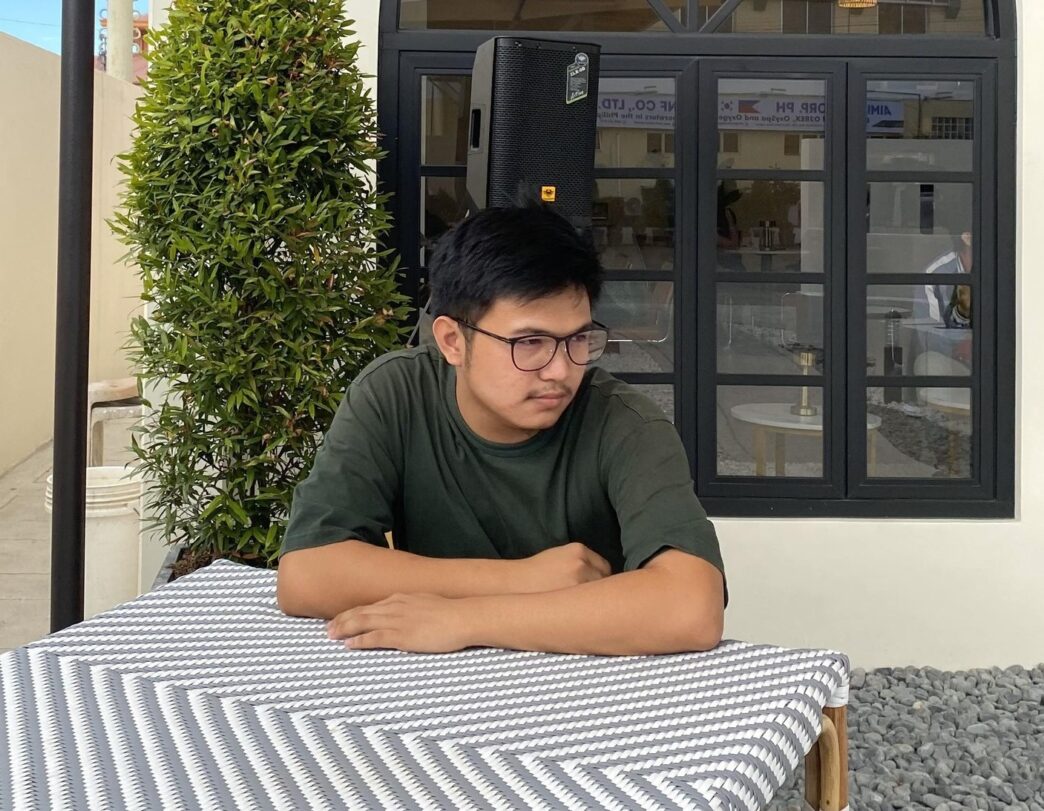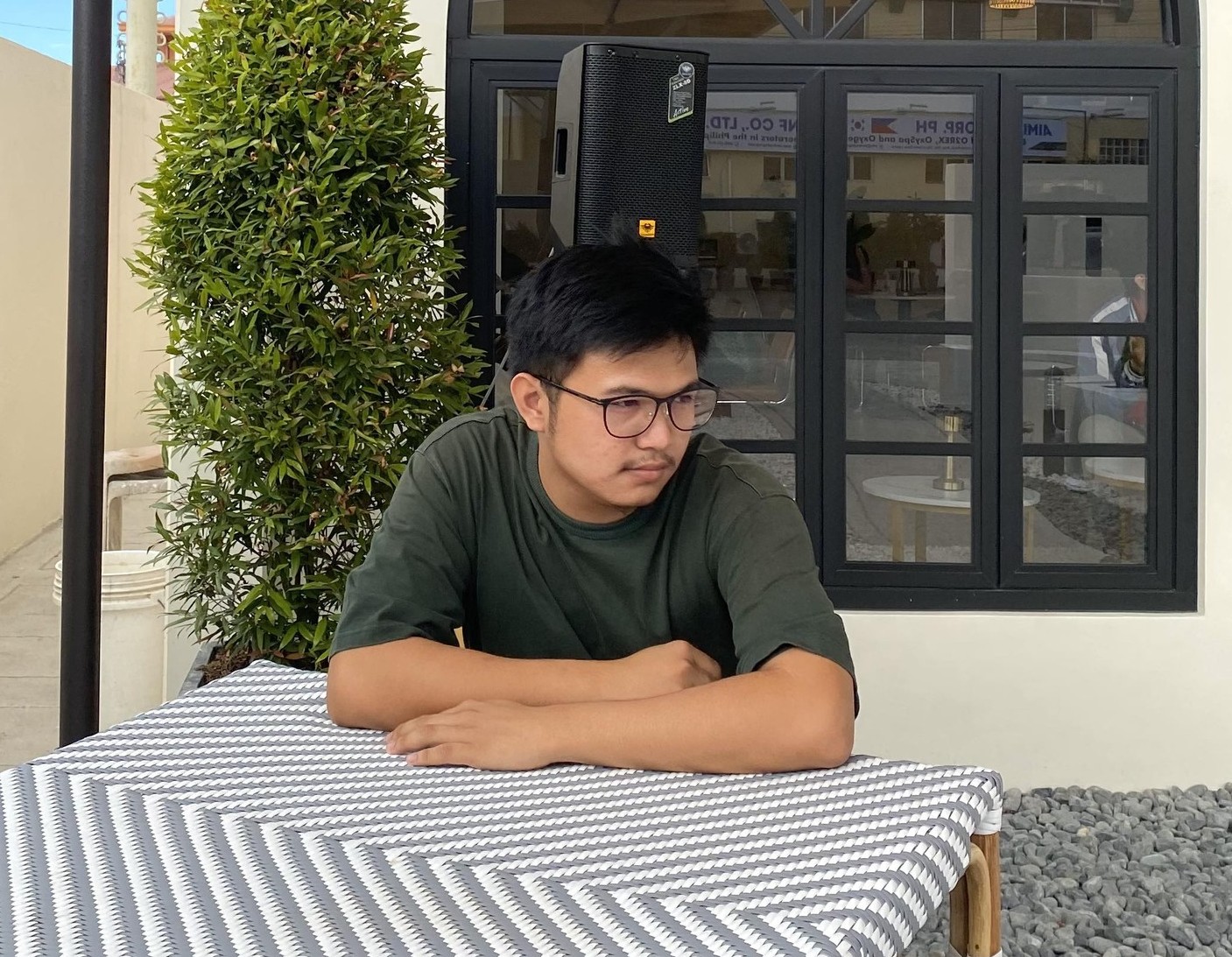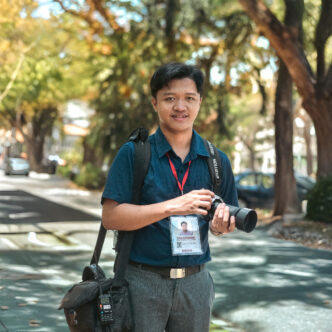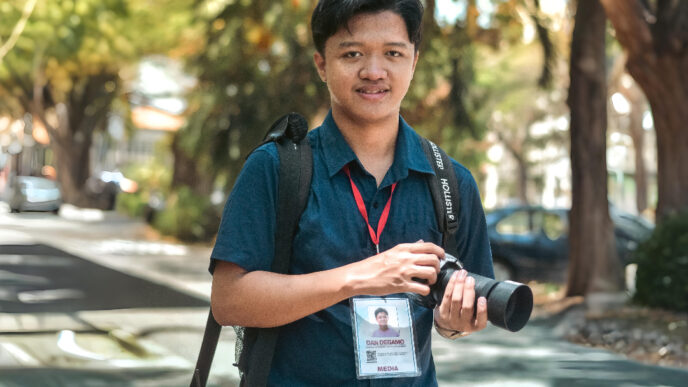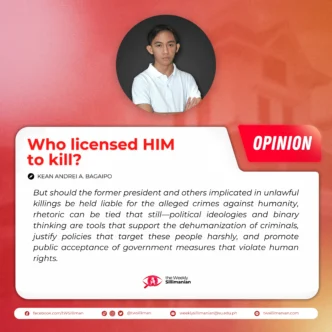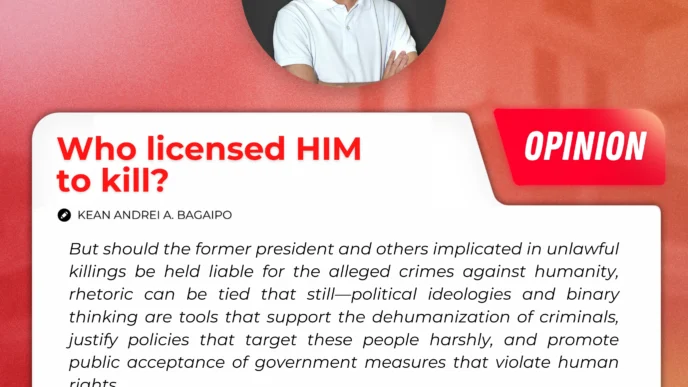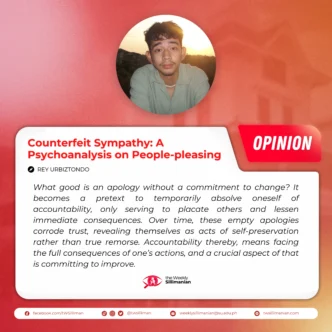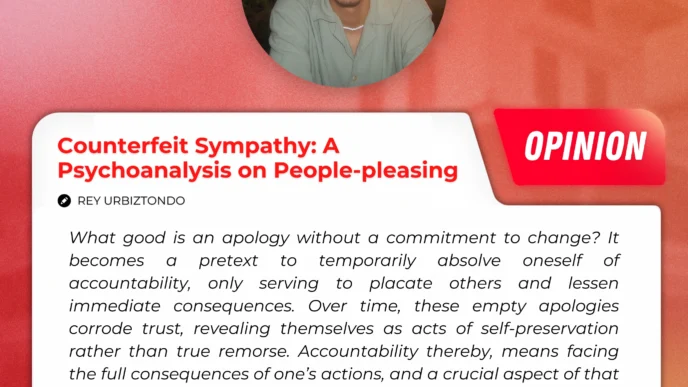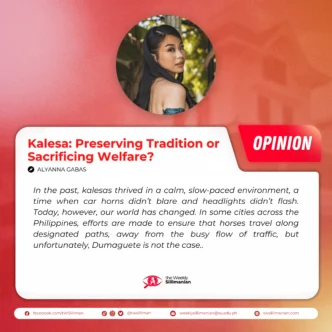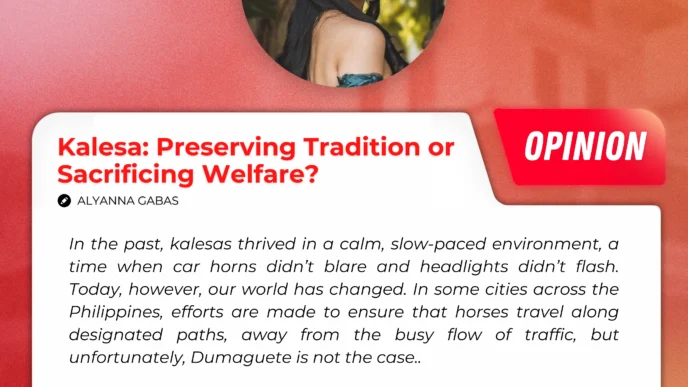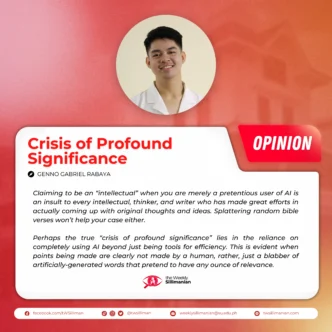By Jasper Dominic Miranda
When I was a child, I often heard phrases like, “Bakla lang ’yan pero matalino ’yan,” or “Bakla lang ’yan pero madiskarte ’yan.”
On the surface, these might sound like compliments—acknowledging skill and intelligence. But in a deeper context, this insinuates something more troubling: “pero.” The invisible asterisk that says “you are less, but you can make up for it.”
This is what I call queer compensation—the unspoken expectation that queer people in the Philippines must be extra just to be treated equally.
We see it everywhere. The gay student must excel academically or be the class comedian to be “accepted and to earn respect.” The idea is simple but harmful: being queer is a “minus,” and you must earn enough “pluses” to balance the score.
It’s as if we are trapped in an unwritten bargain—our dignity in exchange for our exceptionalism. While this pushes many in the LGBTQIA+ community to rise, it also quietly erodes the truth that our worth should never be conditional.
On the other hand, Philippine culture, for all its warmth and hospitality, still carries an ingrained tolerance rather than true acceptance. We are loved for what we can do rather than for who we are. And so, queer children grow up believing they have to overachieve, overperform, and overdeliver to be seen.
Queer people shouldn’t have to prove they belong every time they walk into a room. They don’t need to be the smartest, the funniest, or the most talented just to be treated with respect. Their worth isn’t something to be earned—it’s something they already have. It should never come with conditions or expectations. Every queer person deserves to exist, to take up space, and to be seen as enough, exactly as they are.
But the bigger problem is that this culture of conditional respect thrives in a system that has yet to fully protect us.
The SOGIE Equality Bill—meant to protect Filipinos from discrimination based on sexual orientation and gender identity—has still been delayed in Congress for more than two decades. Without it, prejudice is allowed to hide in plain sight, excused as “tradition” or “personal belief.” Our leaders have yet to make a firm stand for equality, and our government has yet to make itself truly accountable for protecting its queer citizens.
This is why queer compensation isn’t just a social problem—it’s a systemic one. As long as laws remain silent, society will keep asking us to be exceptional before it gives us respect. We need legal safeguards and inclusive education programs, and leaders who won’t treat equality as a negotiable privilege.
So what if we didn’t have to? What if queer people could simply exist without the constant need to earn their space in the room? Respect should be a baseline, not a reward.
Confronting these challenges goes three ways. The challenge for our society is to break the habit of measuring queerness against achievement. The challenge for us in the queer community is to reclaim the right to be ordinary, without fear of invisibility. And the challenge for our nation is to pass the SOGIE Equality Bill, choose leaders who stand for inclusion, and hold them accountable when they fail to protect the marginalized.
Because at the end of the day, we are not “bakla lang.” We are people—period. No compensation required.
So let’s demand for more than compliments. Let’s demand protection. Speak up when you hear backhanded praise. Support legislation that defends everyone’s dignity. Vote for leaders who will push and fight for equality. The cost of being queer should never be our right to simply be.

